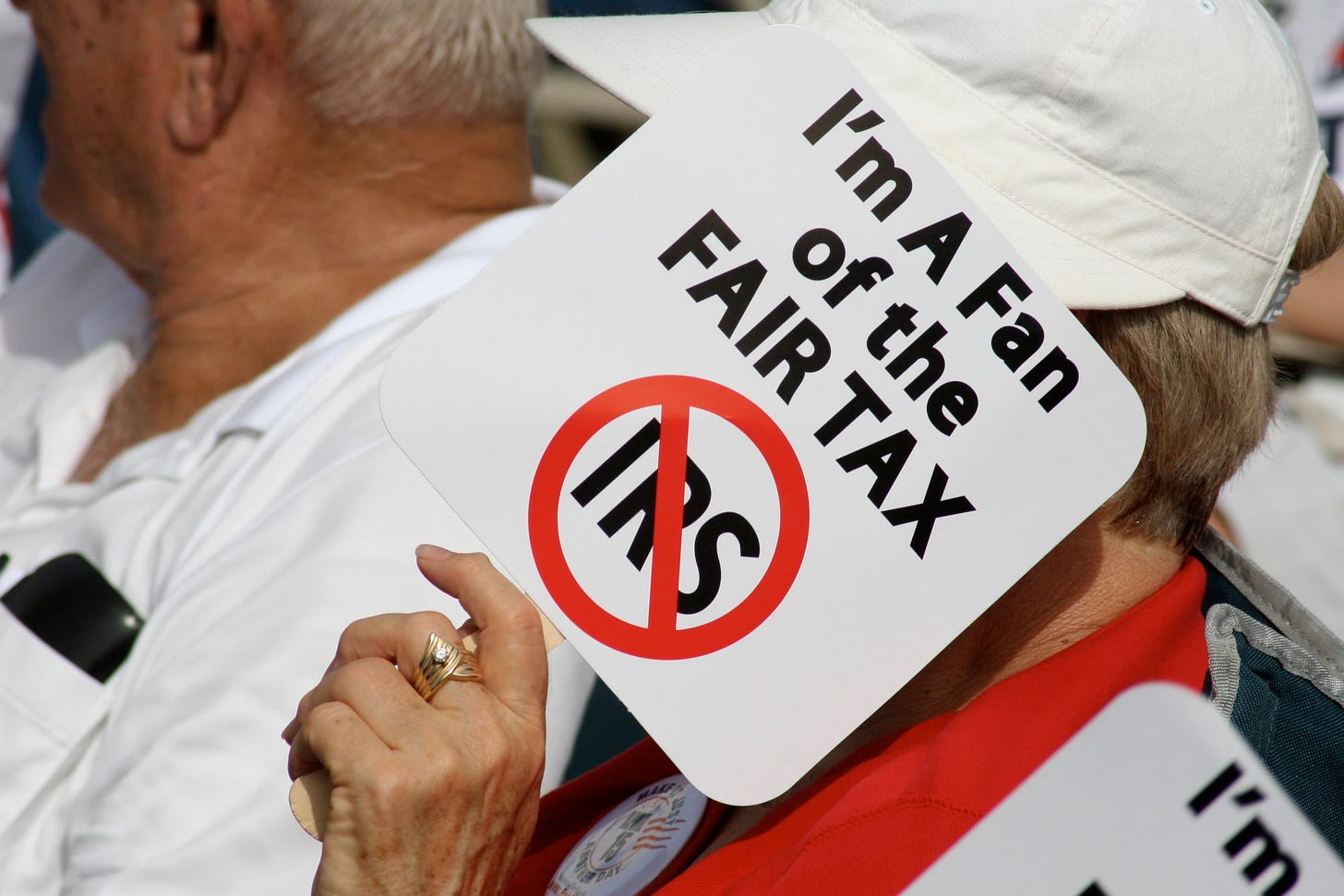Main Street’s Verdict on the Tax Code
What 1,200 American Voters Told Us About Income Taxes, the IRS, and the FAIRtax
What’s Fair: Earnings or Expenditures?
Asked what kind of taxation they find most fair—on income or on spending—voters split directly down the middle. Roughly a third for each, and another third split between both or unsure.
Older voters stick to the familiar. Younger Americans and minorities are more receptive to taxing consumption rather than earnings. College graduates and postgraduates prefer the current income-based system; voters with less education favor a shift toward taxing spending.
No model—be it income, consumption, hybrid, or flat—commands a majority. Fairness itself is now contested terrain.
Low Awareness, High Openness
Despite being debated in policy circles for decades, only one in four Americans is aware of the FAIRtax Act (H.R. 25). Awareness is highest among middle-aged voters and Black voters, but even then, remains low.
This is not to say the electorate is uninterested. Once the idea is explained—keeping your whole paycheck, replacing income taxes with a consumption-based model—support grows. Still, it’s clear: a true national debate over FAIRtax has yet to begin.
A Tax Overhaul? Many Say Yes
When asked whether they would favor replacing the federal income tax with a national sales tax—while keeping their full paycheck—58% of voters say yes. That number jumps among younger voters, Black voters, and Republicans.
Opposition is clustered among the oldest, most educated, and most traditionally Democratic segments of the electorate.
This is not an obscure libertarian proposal. A majority of Americans now say they are at least open to it. It has entered the mainstream.
Concerns: Equity, Affordability, and Complexity
But with openness comes caution. A majority of voters worry that a national sales tax could drive up prices. Nearly half are concerned it would hurt low-income households.
Women, Democrats, and voters with postgraduate degrees express the most concern about affordability and fairness. Still, even among these groups, interest in the idea of reform remains. Americans may accept a new tax model—but not one that feels regressive or rigged.
The 23% Threshold
At the heart of FAIRtax is a 23% national consumption tax. Here, the electorate divides again. One-third think the rate is too high. One-third accept it if it curbs government waste. One-third are fine with it—if prices stay stable.
Just 20% oppose it outright. Which is to say: the rate isn’t a dealbreaker. But trust is.
Confidence in Reducing Evasion
Nearly half of respondents believe a national sales tax would reduce tax evasion. Yet more than a third express doubt, and another 15% say they’re unsure.
Faith is highest among Republicans and middle-aged voters. Among seniors and independents, skepticism runs deeper. Again, the divide is not just ideological—but generational.
What Resonates
Of all the components of FAIRtax, one idea towers above the rest: keeping 100% of your paycheck. Nearly 60% of respondents chose this as the most appealing feature.
Refunds for essentials, tax transparency, and the idea of eliminating the IRS also resonate—but to a lesser extent. Democrats are especially wary of IRS abolition, while minority and working-class voters are more focused on control over their own earnings.
The data suggest this isn’t about revolution. It’s about autonomy—and simplicity.
What’s the Fairest System?
Asked what they believe is the fairest and most effective tax structure, 28% support a national sales tax. The rest are divided: 18% prefer a hybrid system, 17% want a flat income tax, and only 14% defend the current regime.
Most revealing: 24% aren’t sure at all. That level of uncertainty speaks to more than complexity—it signals a lack of confidence in all current approaches.
Final Word
This is not yet a populist uprising. But it may be a prelude.
Across every question and every cross-tab, one theme recurs: the American public—especially its younger, working-class, and minority segments—is growing restless with the structure of federal taxation.
There is no new consensus. But the old one is fracturing. And while Americans may not yet agree on the solution, many agree on this: the system, as it stands, no longer works for them.
Commissioned by the National Tax Research Committee
Conducted by Quantus Insights
Sample: 1,200 Registered Voters (900 Web | 300 SMS)
Field Dates: May 30 – June 5, 2025
For additional details, see: Full Presentation | Detailed Crosstabs




